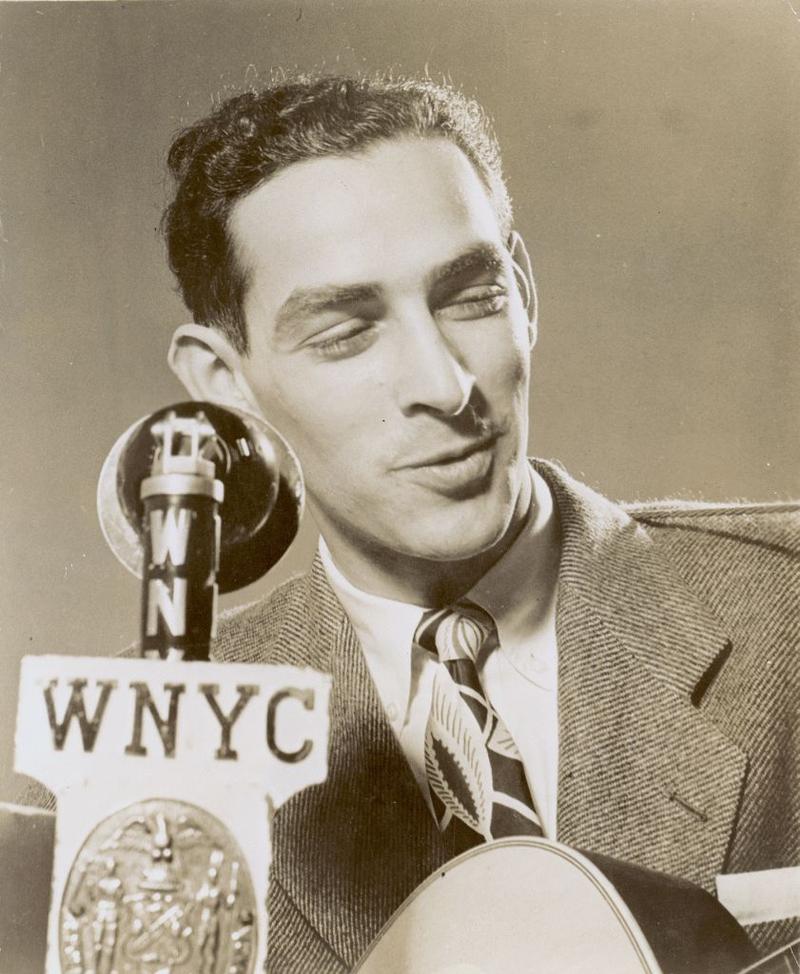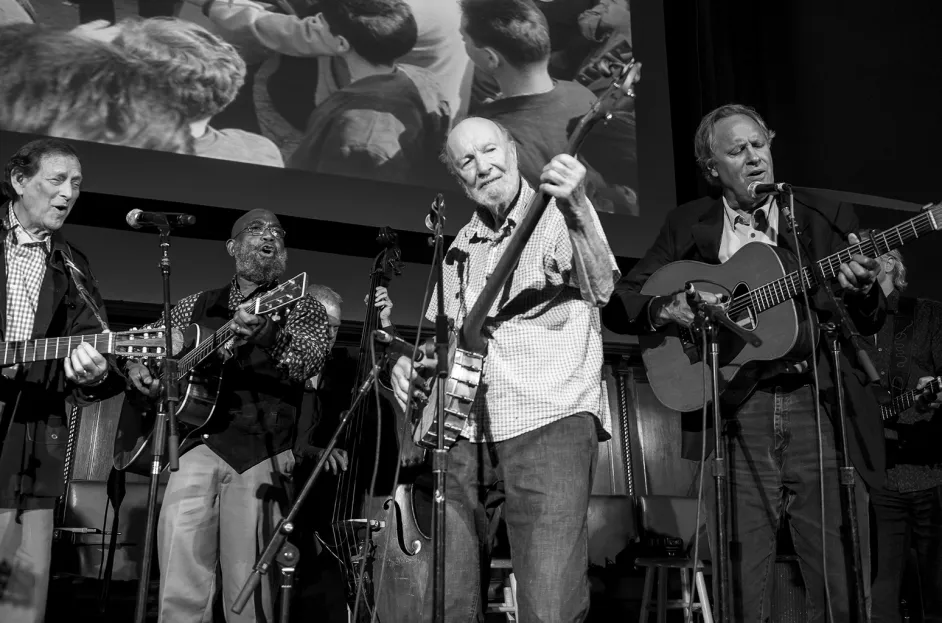This is part twelve of our series of articles about the Folk Americana Roots Hall of Fame’s (FARHOF) inaugural class of inductees. The first induction ceremonies will take place in April although an exact date has yet to be announced.
* * * * *
Oscar Brand was a folk singer, songwriter, recording artist, storyteller, author, humorist, musicologist, playwright, historian, radio host, and possibly the namesake of Sesame Street’s Oscar the Grouch. Whew!
His biggest accomplishment, however, was to provide a forum and open microphone for the American folk music scene. Oscar Brand was recognized for his contributions to broadcasting with a Peabody Award in 1995. The citation for the award noted, “He has always strived to present music and artists who were considered politically unpopular, even seditious.”
Oscar’s career spanned 70 years and he composed over 300 songs and released 100 albums. His songs ran the gamut from novelties to serious social commentary to sea shanties to bawdy ballads. Best known of these ballads was “A Guy Is A Guy” recorded by Doris Day. It is the story of a young lady “walking down the street like a good girl should” followed by a guy following her “like I knew he would. The verses all end with the recurring lines “so listen while I tell you what the sailor did to me.” Be warned! It is not what you may be thinking it is.
Born in Winnipeg, Manitoba, Canada on February 7, 1920, Oscar’s family moved to Minneapolis in 1927 and eventually to Brooklyn, NY. It was there he graduated from Erasmus Hall High School and later from Brooklyn College with a bachelor’s degree in psychology. He served in the Army during WWII and upon his discharge returned to Brooklyn. It was there he began a gig that would land him in the Guinness Book of World Records and lead to his Peabody Award.
Oscar Brand’s Folksong Festival began broadcasting on Saturday, December 10, 1945, and ran until September 2016, a span of nearly 71 years. It was the longest running radio show with the same host, according to the folks at Guinness. Oscar introduced a veritable Who’s Who of folk singers to the American public. His guests included Woody Guthrie, Arlo Guthrie, Bob Dylan, Joan Baez, Huddie Ledbetter, Judy Collins, Odetta, Pete Seeger, The Weavers, and Peter, Paul & Mary.
The show by some standards was not very polished or professional. Oscar was very easygoing and so the show’s pace moved along accordingly. “The guest would talk and sing until he got tired, and then I’d sing a few songs,” he told the New York Times in 1985. It is said Arlo Guthrie gave his first live performance of “Alice’s Restaurant” on Oscar’s Folksong Festival.

Oscar refused to be paid by WNYC, which hosted Folksong Festival, in order to make sure the program could not be censored. His show became an important vehicle for artists blacklisted during the McCarthy era.
“Every folk singer who came to New York wanted to be on Oscar’s program,” acclaimed folk singer Jean Ritchie told Newsday in 2005. He also “lent money to the poor ones,” she said, adding that he put her on the show soon after her arrival from the Kentucky mountains.
The House Un-American Activities Committee targeted Oscar for being a “pipeline of communism” for having blacklisted artists on the show. This despite the fact he was an anti-Stalinist and never had been a member of the communist party. His “un-American” activity apparently was providing a safe haven for freedom of speech and supporting the civil rights movement.
Oscar also hosted a TV variety show in his native Canada called Let’s Sing Out. The show gave new voice to The Weavers and Malvina Reynolds and also introduced then-unknowns Joni Mitchell and Gordon Lightfoot.
It was his stint on the advisory panel for the Children’s Television Workshop that gave rise to the theory he was the namesake for Oscar the Grouch. He told the Chicago Tribune in 1998 that he did not want Sesame Street’s setting to be so sanitized as to be unrecognizable to the underprivileged inner-city children whose attention the show was supposed to grab. He fought for sloppy city streets, fought for garbage cans on the front steps, and winos. When the final result fell short of his vision, he complained to anyone who would listen — not, he observed, unlike Oscar the Grouch.
Oscar Brand died on September 30, 2016, at the age of 96.
Next up: Johnny Cash


